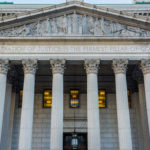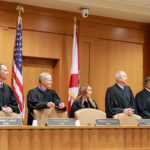Landlords and Tenants Seek Short-Term Solutions for Commercial Leases Affected by COVID-19
Commercial real estate landlords and tenants are faced with difficult decisions as they adapt to the effects of the response to the Global Coronavirus (COVID-19) pandemic. In reaction to health directives and guidelines issued by the Centers for Disease Control (CDC) and other health authorities, various state and local governments have taken actions to mitigate the spread of COVID-19, including issuing stay at home orders and forcing closures of non-essential businesses.
Business owners and operators and property managers should always fully comply with governmental orders and health guidelines, review any and all relevant agreements, and consider the possible legal ramifications of any potential course of action. The specific terms of an agreement will generally govern the obligations and responsibilities of commercial landlords and tenants when assessing the impact that the response to the COVID-19 outbreak may have on either party’s ability to perform.
As commercial property managers develop plans for enhanced cleaning, limited or modified use of facilities, and interruptions in operations in light of new guidelines and regulations, commercial tenants, faced with the harsh realities of having to shut down, are reaching out to their landlords to seek relief from rents or to express an inability to pay. Over the past several weeks, Xander Law Group attorneys have fielded questions from clients regarding how COVID-19 is impacting their businesses. Commercial landlords should be careful and consult with counsel when responding to a commercial tenant’s requests for accommodations due to hardships but should maintain open communication in order to preserve positive relationships with their tenants.
The rapid spread of COVID-19 and the increasing severity of the governmental response raise serious concerns for the ability of commercial landlords and tenants to perform their respective obligations in commercial leases. It is prudent for commercial landlords and commercial tenants to review their commercial leases to understand their rights and obligations under their lease documents, including circumstances under which a party may potentially be excused from its obligations due to a situation such as the COVID-19 pandemic.
A Force Majeure clause (French for “superior force”) is a contract provision that allows a party to suspend or terminate the performance of its obligations when certain circumstances beyond their control arise, making performance inadvisable, commercially impracticable, illegal, or impossible. When an agreement includes a force majeure clause, it usually operates to relieve one or both parties of some or all of their contractual obligations. Force majeure clauses in commercial leases often expressly exclude payment obligations of the tenant from the definition of force majeure. Whether the coronavirus outbreak constitutes a force majeure event under a particular agreement will depend on the language of the agreement, the relationship between the coronavirus outbreak and any non-performance, and the applicable law.
Even if a lease does not specifically include a force majeure clause, it is possible that the COVID-19 outbreak or its effects could be the basis of claims based on the common law doctrines of “impossibility” and “frustration of purpose”. If a government order prevents a commercial tenant from accessing and operating in its premises, or a landlord from providing services required under the lease, the parties may be relieved of certain obligations depending upon the specific provisions of the lease.
Xander Law Group ‘s commercial real estate team continues to monitor and evaluate the rapidly evolving legal landscape in order to provide in-depth information and practical business counsel to our clients. When commercial tenants request rent payment reductions or other accommodations, there are several creative solutions available to commercial landlords such as application of a security deposit or modifications to a lease to defer payments (spreading out the deferred amounts over the remainder of the lease). Alternatives such as these allow commercial landlords to mitigate losses while providing tenants short term relief during the duration of the COVID-19 crisis. Xander Law Group attorneys are working diligently to counsel clients through various real estate issues and a wide array other business matters. If you have questions about your particular lease situation, contact Xander Law Group today at 305.767.2001 or via email at
contact@xanderlaw.com.









